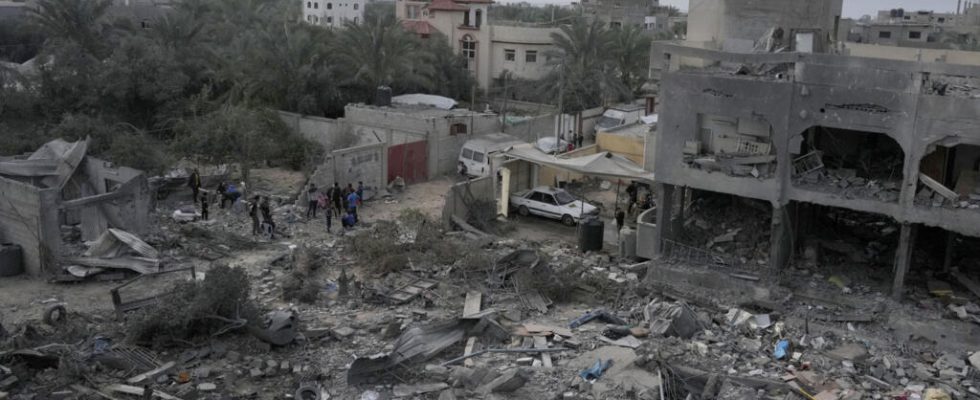More than two months after the October 7 attacks, fierce fighting continues and Israeli troops continue to advance in the south of the Gaza Strip. “ Endless deaths of civilians, destruction of buildings on an incredible scale »: desolate picture painted by The evening… And still darkened by El País, which describes a “ hell with almost no electricity, water, gas, food and medicine ” Or ” no one is safe “. As to New York TimesHe fears ” a potential mass shift » from the Gaza Strip to Egypt, since “ the last point of refuge for Palestinians […] is collapsing under the weight of tens of thousands of people searching for food and shelter “.
In short, for The evening« the methods of the Israeli army raise questions » ; El País goes a little further and frankly asks if “ crimes against humanity are committed in Gaza ? “.
Read alsoGaza: “Western countries are complicit in this massacre”
A question without a clear answer
And it is all the more difficult to answer as many points must be taken into account. There are in particular concerns around a forced displacement of the population, which could, according to a specialist in international law interviewed by El Paísconstitute “ a war crime in the form of illegal transfer “. Especially since, adds another expert, Israel cannot hide behind strategic explanations: “ saying that the entire northern Gaza Strip is a military objective is not in accordance with the law “, he asserts.
Above all, there is the question of the proportionality of violence. For the former director of Human Rights Watch speaking in the columns of the Spanish title, “ it is forbidden to attack an entire civilian zone, only because certain military objectives may be located in these zones “.
Taking up an investigation by an Israeli journalist, The evening believes for his part that “ nothing happens by chance ” and that the immense civilian losses come from a calculation: it is ” create a shock » within civil society, which “ will reverberate powerfully and lead civilians to put pressure on Hamas “. Pressure on the Palestinian armed group, pressure on the border with Egypt, international pressure also on the Jewish state… but for the moment, the situation still looks like a stalemate.
Read alsoIsrael-Hamas war: the Israeli army wants to “increase the pressure” on Gaza
In Argentina, Javier Milei promises “ the light at the end of the tunnel »
Comments made yesterday by the new Argentine head of state, just invested, on the subject of the economic tunnel traversed by the country – after all, ironically El Paísit is ” its space of so-called knowledge “. A form of legitimacy by virtue of which the president accused the Kirchnerism that preceded him of all the evils: “ he assuredtell The Nation, that he inherited inflation […] potentially 15 000% “, warned that “ hyperinflation is already among us » and predicted “ 100 billion dollars [de dette] additional “, adding ” to the already consolidated increase of almost 100 billion dollars in public debt “.
In short, the description “ of a future so dark, that a black future would be [le] great triumph » of the new president, summarizes El País – at this point it’s almost, breath The Nationof “ a project of salvation “.
Read alsoJust inaugurated president, Javier Milei promises Argentina a “shock” of austerity
A ready-made solution
Argentina is going through a deep crisis, but tongue-in-cheek, The Nation emphasizes that for Milei, “ this disaster [durera] only a few months, due to the adjustment of the public accounts “. A real shock therapy, mainly made up of cuts in state spending.
In any case, that’s what was promised. Except, note The crosssince Javier Mileil’s victory, “ the tone has changed » and the man sought to temper the expectations aroused by his candidacy “. “ ‘Destroy’ inflation ? Yes but ‘within 18 to 24 months.’ Give up the peso ? Certainly, but not right away. Drastically cut taxes ? Still yes, but ‘not for now.’ » writes the French daily.
In short, “ no big libertarian evening ” but ” rather ‘sweat and tears’ “. El País prefers to laugh about it than to cry about it: “ Hope shines again in South America », the newspaper concludes bitterly.
Also listenWhat will Javier Milei’s Argentina look like?
